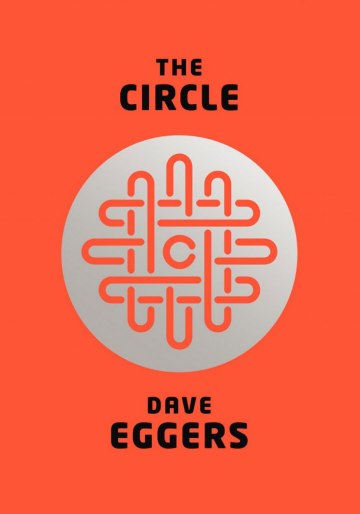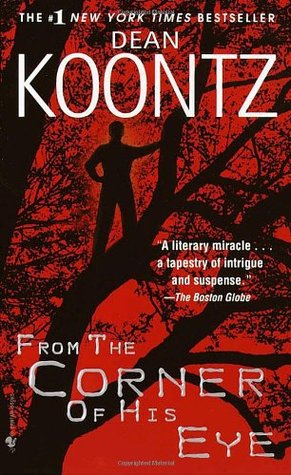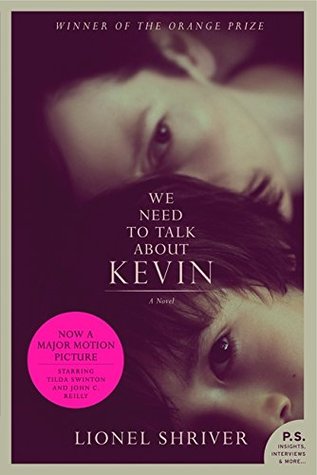
“SECRETS ARE LIES
SHARING IS CARING
PRIVACY IS THEFT”-pp. 305
Technology can make our lives seemingly more simple while at the same time complicating them in unforeseeable ways. The Circle by Dave Eggers is best summarized by the age old question popular in science/technology based dystopias: “How far is too far?” Unlike other dystopian novels however, that question is never answered explicitly, and is ultimately up to the reader to decide.
Let me take a step back:
The Circle chronicles the evolution of Mae Holland, a 20-something post-grad that is stuck in an all-too-familiar-to-millenials rut. She is working a crappy job, has student loan officers harassing her daily, and is living with her parents.
Her life suddenly changes when her best friend from college, Annie, helps her secure a job at “The Circle,” a fancy new tech company that is eerily reminiscent of Epic Systems (a software company in Madison, WI. The author also happens to be from Chicago, so I’m further convinced this place might have inspired him). Compared to her previous job, The Circle is a utopia. She has a living wage and supervisors who support her. There are fancy themed department buildings, cafeterias where famous chefs offer succulent dishes, parties on campus at night, sports facilities, and even dormitories where you can sleep if you work late. She can’t believe her fortune to work for a company like this.
While Mae finds herself more drawn in to life in The Circle, she finds life outside to be less exciting and grim. What starts as a blissful fairy tale of a promising career starts to take a darker turn as The Circle expands its influence and power. Suddenly people who openly express worry that The Circle is becoming a monopoly start to have their metaphorical dirty laundry once protected online exposed to the media. Workers at The Circle develop technology that raises questions of what should be considered private versus publicly accessed information.
A lot of reviews of this book equate The Circle to 1984. While I would agree that both illustrate a dystopia (one in development in The Circle) that rests on the value that personal privacy is a threat to national security, this book is much more complicated than that. This novel is timely in that a lot of the young characters grew up hearing about terrorist attacks, school shootings, and corrupt politicians. Not only that, their desire to be connected to others and validated on social media contributes to the paranoia and anxiety that fuels The Circle’s power. The Circle’s mantra quoted above expresses the shared values of these young characters who want to hold people accountable for atrocious actions and share their lives and find instant (yet ironically meaningful) connections on social media.
Eggers manages to handle these modern issues, questions, and controversies without lecturing the reader. Unlike 1984, most characters in The Circle eagerly give up their rights to privacy for the sake of professional transparency and security (all for different reasons that are explored in the book). What’s chilling is that in this novel, it doesn’t take government force to make people give up their rights; it’s the pressure to follow the example of their peers and “get with the times.” Concerns expressed by people who are wary of The Circle are dismissed by Mae and her colleagues with a pitying and condescending eye-roll. They are, after all, pioneers of the new wave of technology. Resistance is futile…in fact resistance is blasé and a sign of moral flaws.
Overall, The Circle isn’t solely a dire warning or a lecture on the potential harms of unchecked technological advancement. Its power lies in its ability to creep into your subconscious and find yourself pondering “What if..?” when you next find yourself at a social gathering surrounding by peers tapping away at their I-phones. Without giving away the ending, I’ll just say that the last lines of the book sent a shiver down my spine and have since made me contemplate the roles social media and technology play in our lives, as well as the effects lack of privacy and unrestricted access to information can have on society and the human psyche. Another question The Circle raises is: Do we really want to know everything about ourselves, our friends, our family, or our history?
The other big theme in this book was about human connection, which I would struggle to discuss without revealing major spoiler alerts. In a nutshell, I would agree with the author’s suggestion that technology has, and will continue, to change how humans interact and relate to each other on personal and professional levels. Suffice to say that this book will make you think about a lot of aspects of human society and struggle with questions that don’t have an easy or apparent answer.
As I read over what I’ve typed so far, I realize that this book is very intricate in its layers of meaning. There are many themes that I could have discussed here, but I chose to focus on the ones that resonated the most with me.
A final note on Eggers as a writer: this is the first book I’ve read by him and I was very impressed. Part of what makes this novel so effective is his writing style, especially his insertion of metaphorical scenes that give you goosebumps without really knowing why at first. I still shudder when I think about the symbolic scene with the company shark, who greedily eats every other sea creature in its tank. Such visceral moments as these add to the foreboding undertone lurking parallel to the dialogue.
Have any of you read The Circle? Let me know what you thought in the comments!



